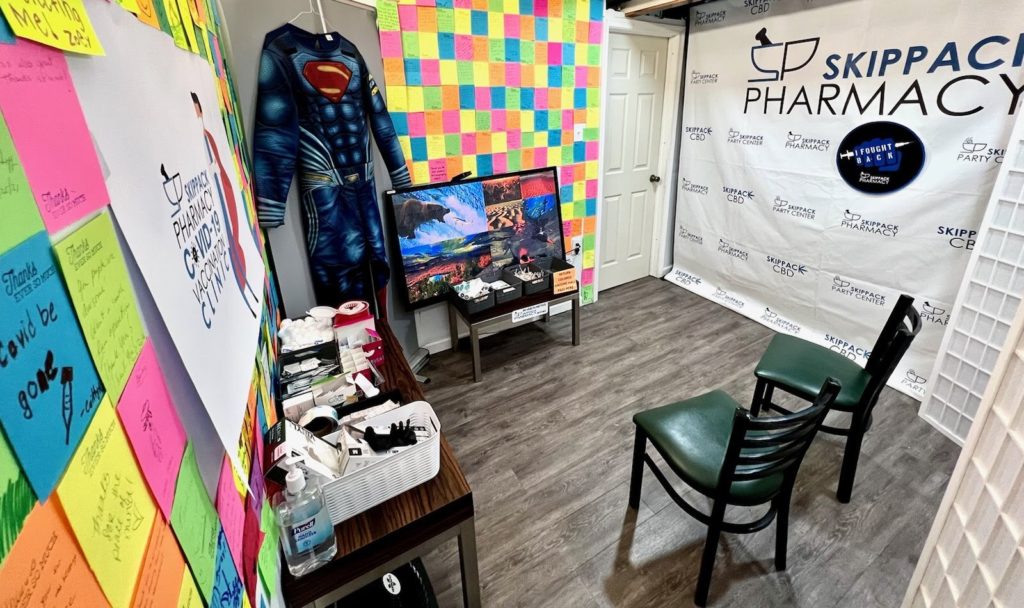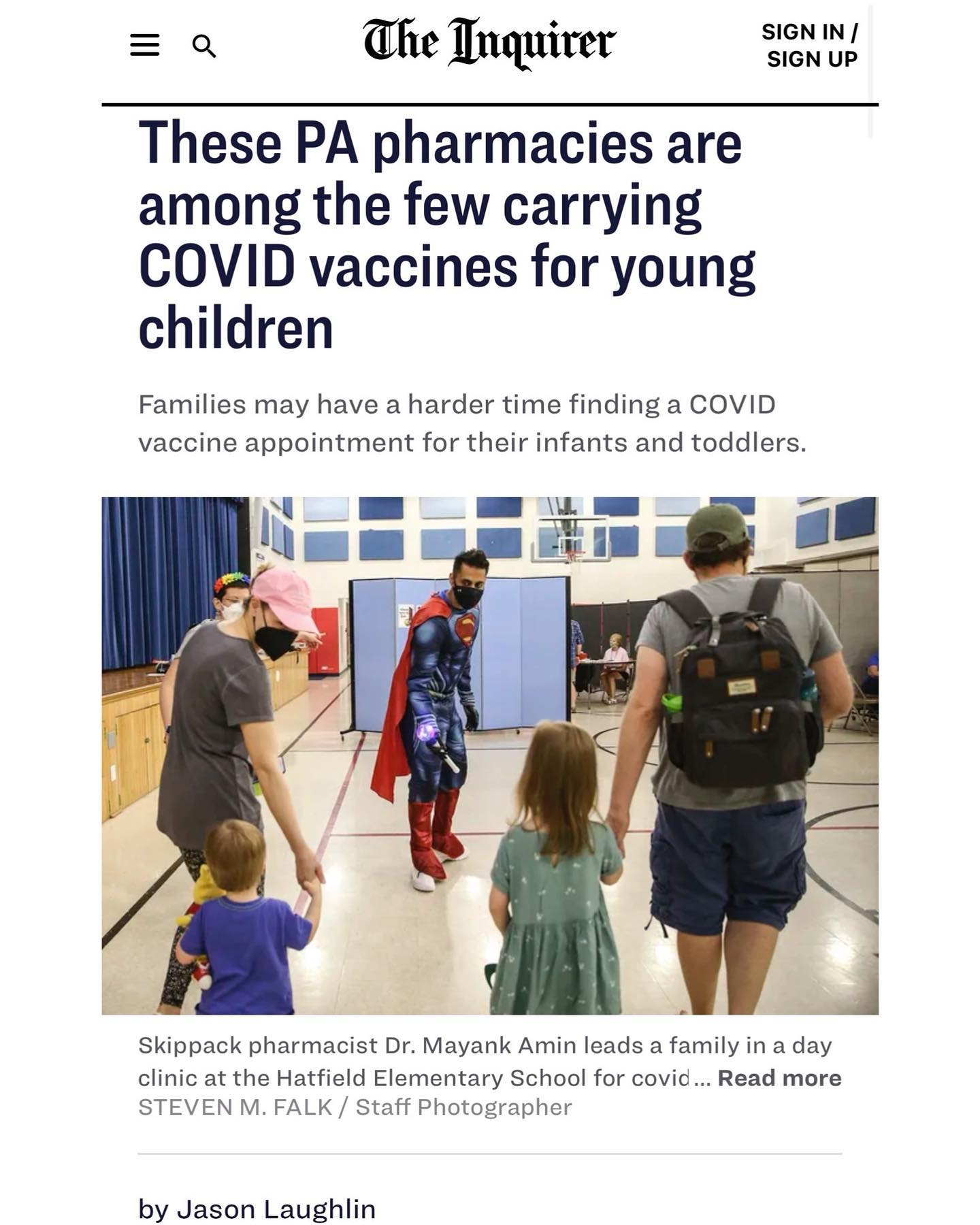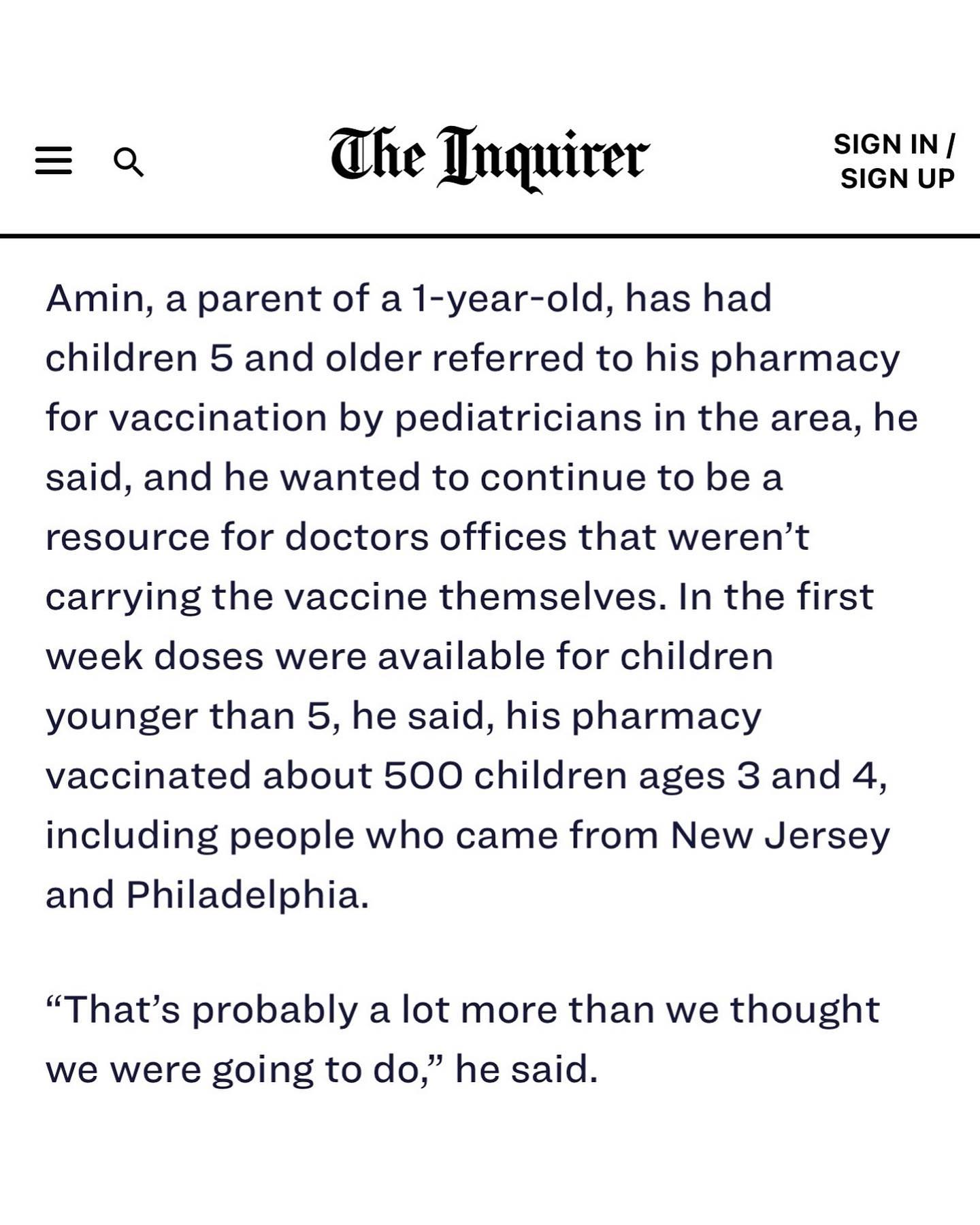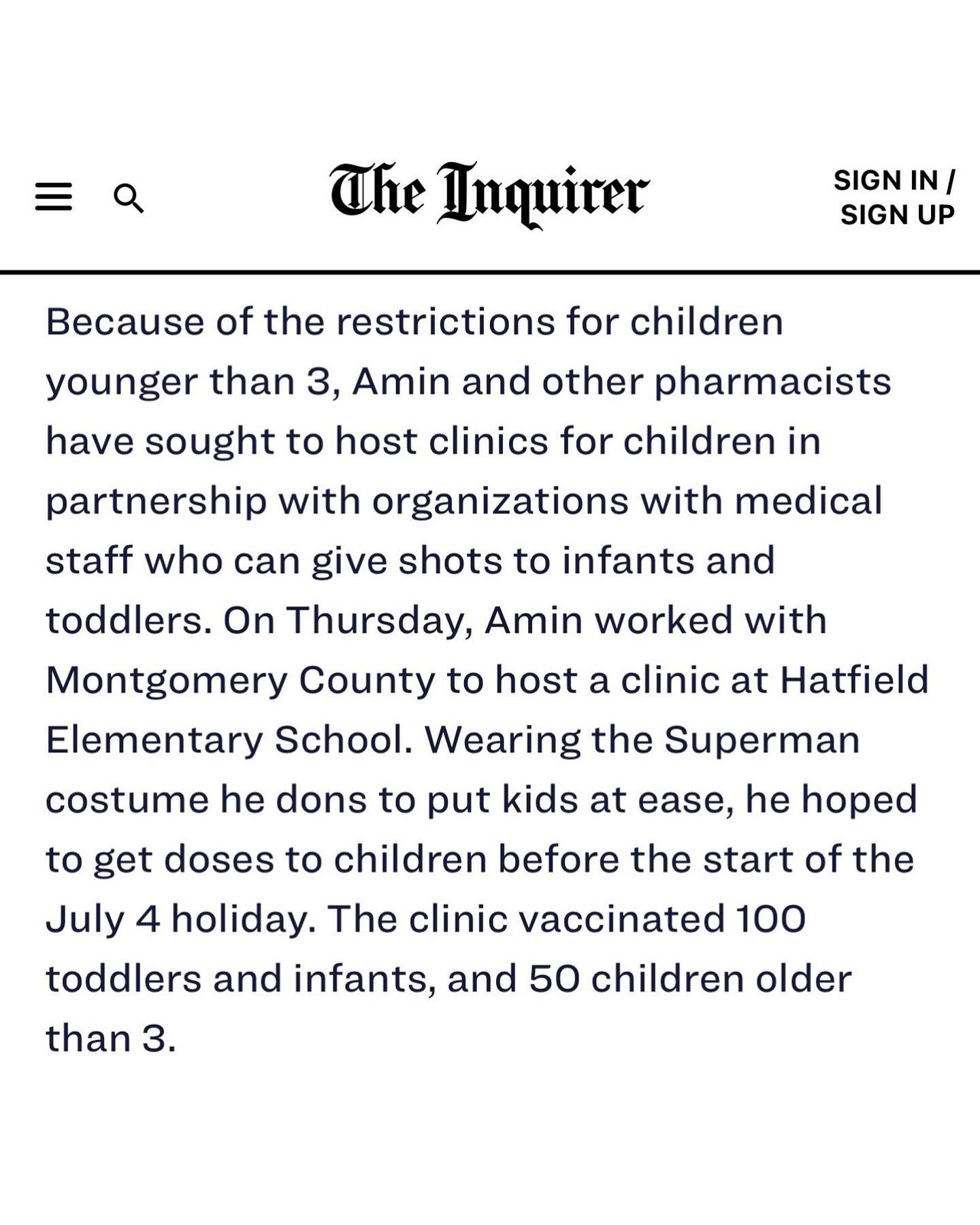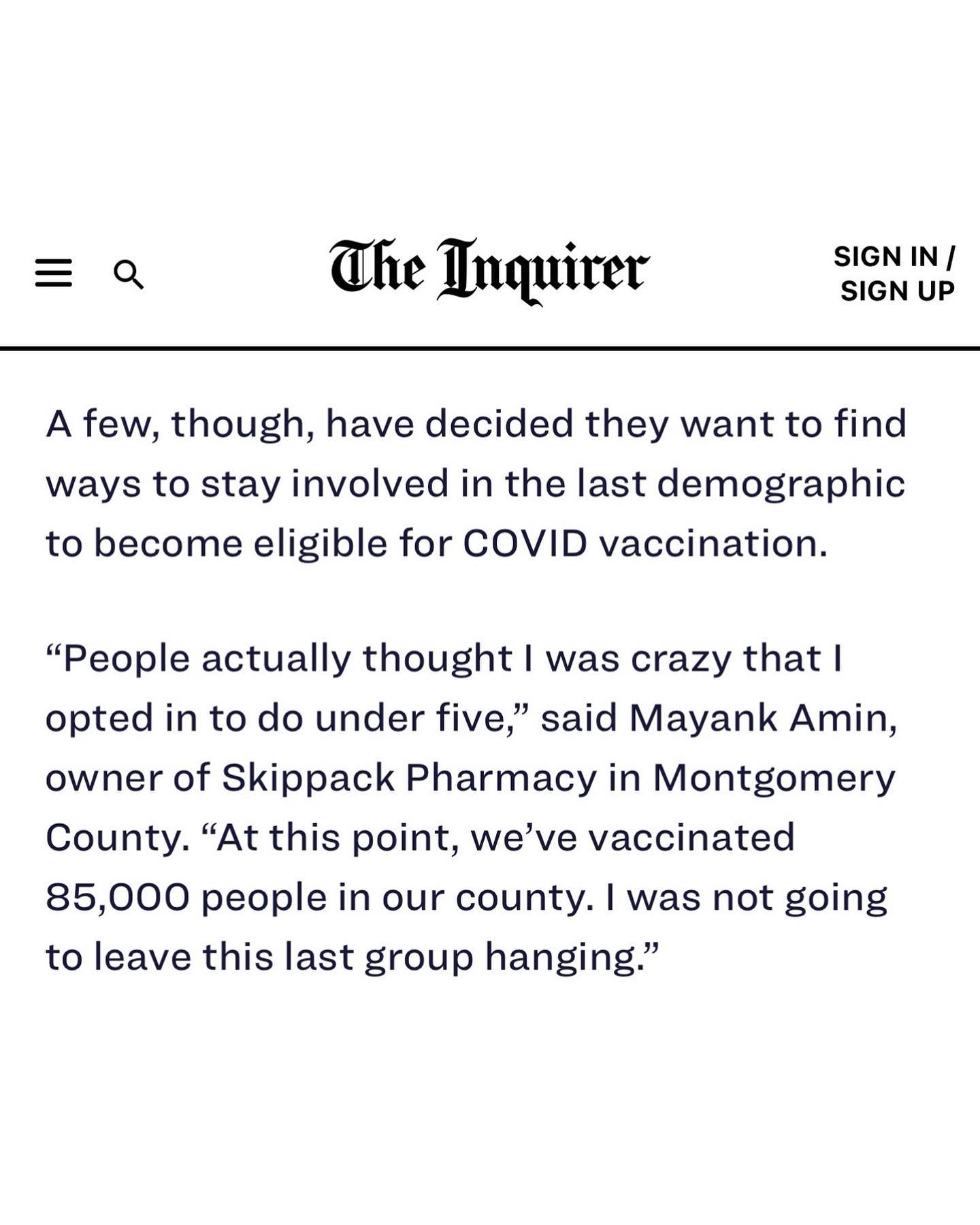Schedule a Vaccine at Our Kid-Friendly Immunization Center
~Located inside Skippack Pharmacy ~Private, sensory-friendly room designed for children ~Appointments for 3+ available Monday-Saturday ~Flu Vaccine or COVID-19 Vaccines
What to Know About the COVID-19 Vaccine for Children
Children should receive the age-appropriate vaccine formulation and follow the schedule based on their age on the day of vaccination, regardless of their size or weight.
If a person moves from a younger age group to an older age group during the primary series or between the primary series and receipt of the booster dose(s), they should receive the vaccine dosage for the older age group for all subsequent doses.
We’re Changing the Way Children View Vaccines
A Reflection on a Past Kids Superhero Vaccine Clinic from Skippack Elementary School (June 2022)
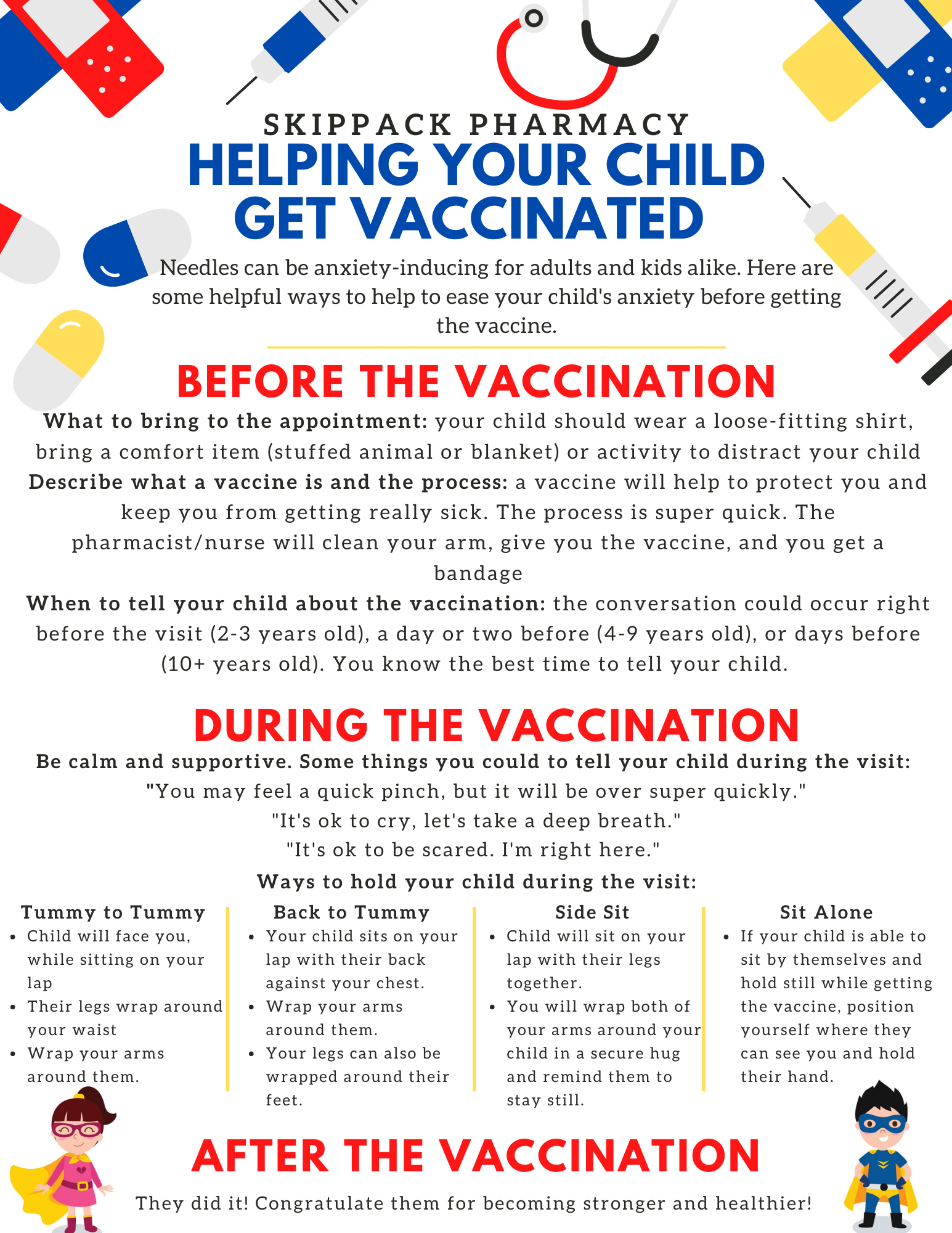
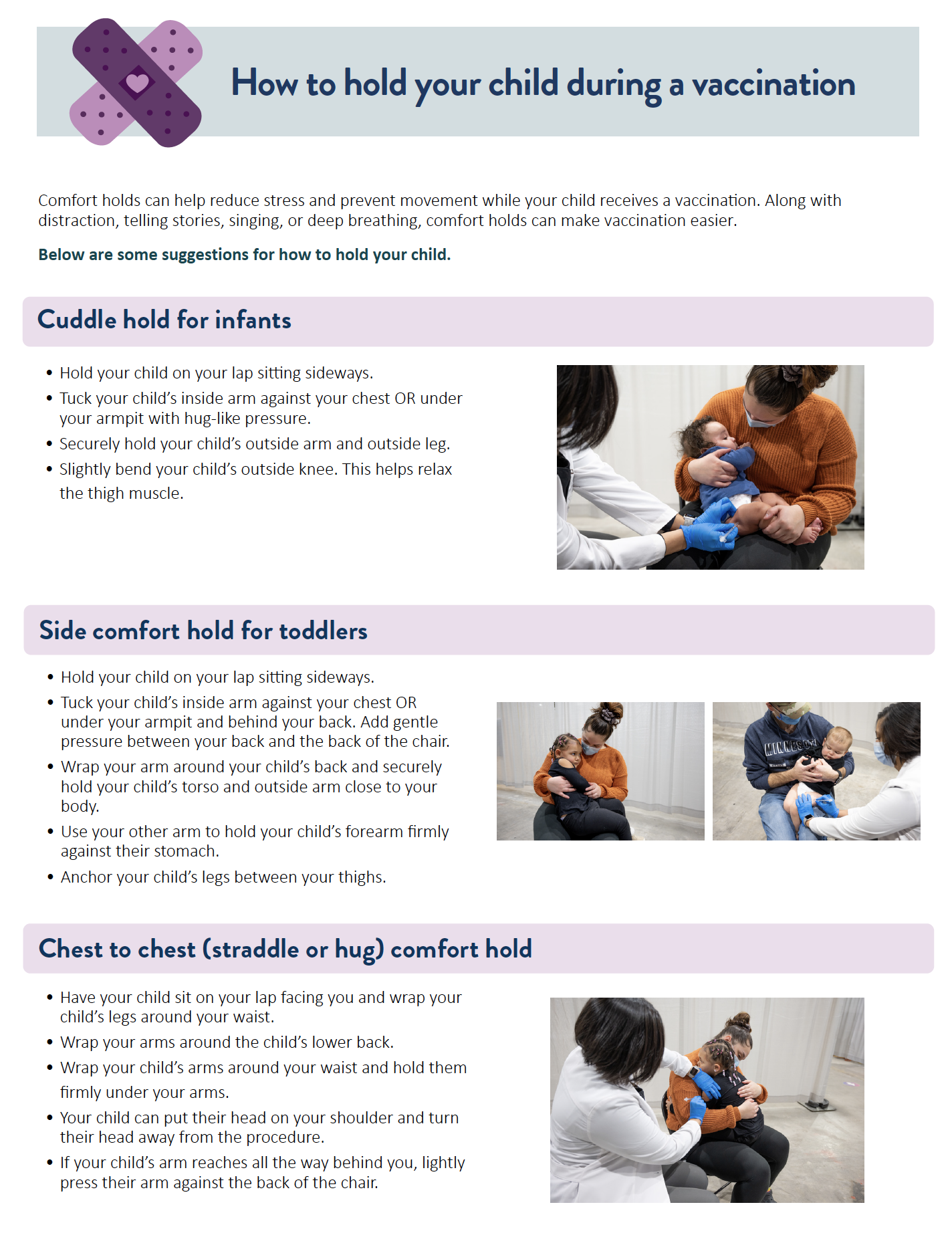
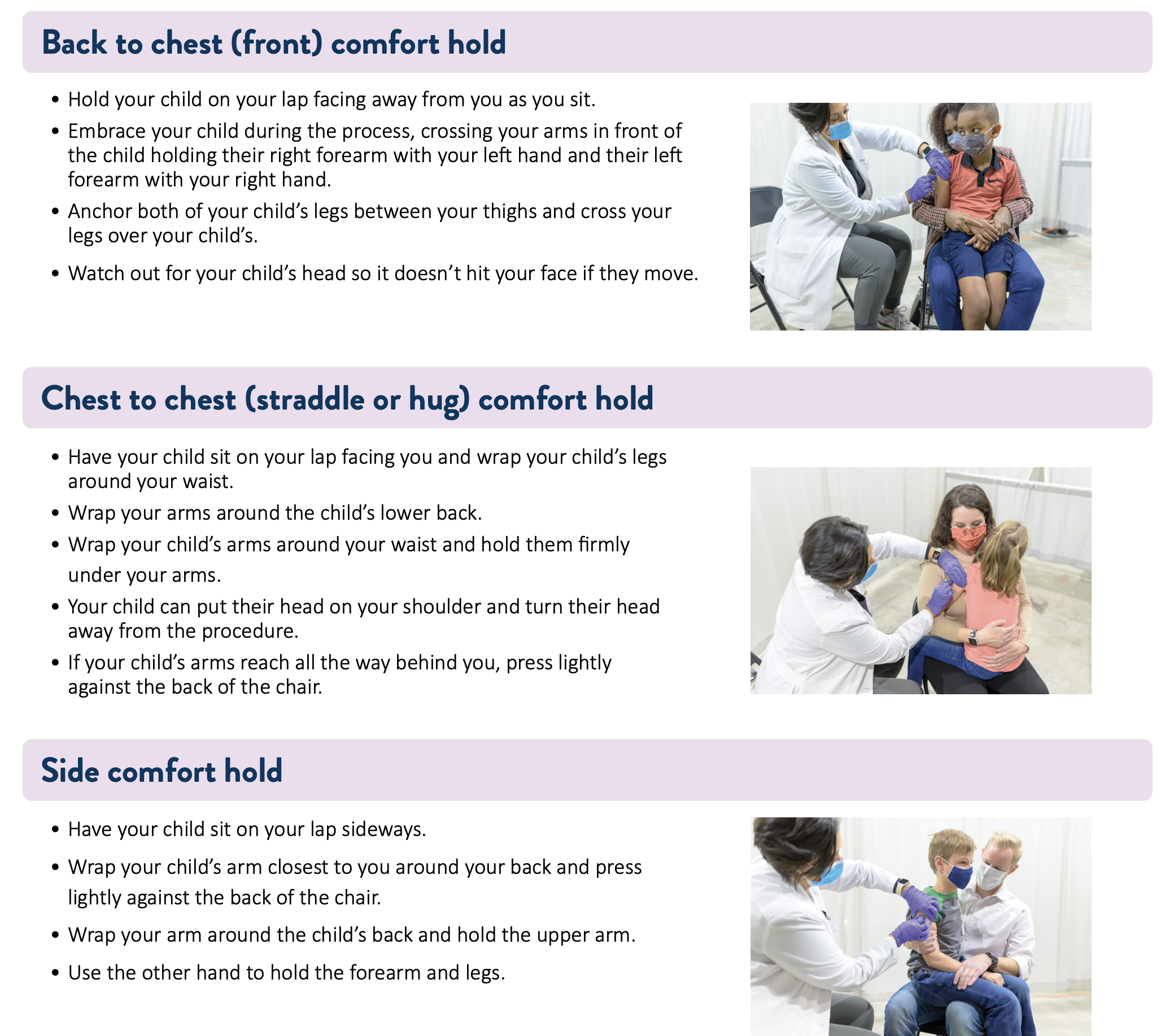

Supporting Your Child When They Receive the COVID-19 Vaccine
Receiving the COVID-19 vaccine can be stressful for children. Here are some things you can do to help your child cope:
• Be honest.
• Identify one person to speak to your child in a calm, quiet voice.
• Identify a position that is comfortable for you and your child.
• Provide choices where choices exist: “Would you rather look at the book or blow bubbles?” instead of “Are you ready for your IV now?”
• Use specific phrases: “You are doing a great job taking deep breaths” instead of “Good job.” OR “This may take as long as your favorite cartoon” instead of “We are almost done.”
• Avoid phrases such as “You’re OK,” “Don’t cry” and “Be a big girl/boy.”
• Avoid apologizing for the procedure.
• Teach your child healthy coping strategies to increase confidence and control.
What Can Kids Expect When Getting a COVID-19 Vaccine?
Are you excited to get a COVID-19 vaccine? Maybe a bit nervous? People have different feelings about getting vaccines — and individuals even sometimes have different feelings about different vaccines. An array of feelings is normal, but sometimes it helps knowing what to expect.
A few considerations are important before going for a COVID-19 vaccine:
- If you have a history of severe allergic reactions (i.e., you carry an “epi pen”), a compromised immune system, or a health condition that might interfere with getting the vaccine, check with your healthcare provider to figure out if you should receive the COVID-19 vaccine.
- Unless you regularly take a pain-relieving medication prescribed by your doctor, it is not recommended to take a pain reliever (such as ibuprofen or acetaminophen) before vaccination. However, it is important not to stop taking a medication prescribed by your doctor before getting the vaccine without first checking that it would be safe to do so.
If you are going to get a COVID-19 vaccine, here is an idea of what you may experience:
- Before you go please wear clothing that makes it easy to access your upper arm without removing your shirt. Take any appointment confirmation, identification, or other items requested by the site.
- When you arrive, you will most likely be asked to sign in or confirm your appointment and eligibility. You or your guardian will probably be asked a few questions before you get the vaccine.
- After you are signed in, you may need to wait for your turn to get vaccinated.
- When it is your turn, the person giving the vaccine may ask you a few more questions. For example, they might confirm your name, ask in which arm you want the vaccine, or repeat questions about allergies or other vaccines. This repetition helps ensure that people are safely and appropriately vaccinated.
- When the vaccine is administered, it does not take long and usually feels like a pinch. Many people find it helpful to distract themselves during the shot by looking at something across the room or talking to someone. If you feel nervous about getting the vaccine, you could also try listening to music or playing with an app to distract yourself. Other ways to decrease your nervousness include taking a few slow, deep breaths as the vaccine is given.
- After the shot is complete, you will most likely be asked to go to a waiting area. People are asked to wait 15 to 30 minutes in case they have any allergic reactions to the vaccine. Although rare, these reactions typically occur soon after getting the vaccine, which is why people are asked to wait.
- At some point during the appointment, you should receive a vaccination card that tells you which COVID-19 vaccine you received and the date you received it. Some people immediately take a picture of this card, so if it is misplaced, they still have the information. While it may be tempting to post a picture of your vaccination card on social media, it is not recommended to do so as the card may have personal information that should not be made public.
What to expect after getting the vaccine:
Getting a COVID-19 vaccine is similar to other immunizations. Some people have side effects while others do not. Side effects are a sign that your body is responding to the vaccine, but don’t worry if you don’t have side effects — it doesn’t mean the vaccine didn’t work. People’s immune systems respond differently.
The most common side effects are:
- pain, redness, or swelling at the injection site
- tiredness
- low-grade fever
- muscle aches for a day or two after getting the
vaccine.
For the mRNA vaccines, these side effects tend to be more common after the second dose.
To help scientists monitor vaccine side effects, your parent can sign up for V-Safe to report any side effects that you feel. V-safe is a vaccine monitoring program developed by the CDC. This program will send check-in text messages after each dose of vaccine to gather data on any side effects you may experience. This system helps with continuing to monitor vaccine safety, particularly in different groups of people.
Immune responses develop a couple of weeks after getting the last dose. Right now, we know that most people who completed the full course of coronavirus vaccine are unlikely to get sick from COVID-19. However, we are still studying how long protection lasts. So far, we know it lasts for at least 6 months.
Vaccinated individuals should continue to follow the guidance related to mask wearing and social distancing suggested by the CDC and local health authorities. It may be different for people who are fully vaccinated, which occurs two weeks after getting the second dose.
As more people get vaccinated, more restrictions will be lifted. For this reason, it is important that everyone who can get vaccinated do so — not only for themselves, but also for those around them and for the community at large.
